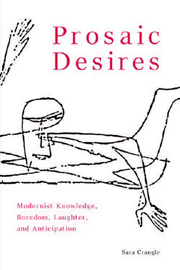1 - Dying to Know
Published online by Cambridge University Press: 12 September 2012
Summary
The protagonists of Hardy's The Hand of Ethelberta and The Well- Beloved are driven, respectively, by ferocious ambition and desperate sexual desire. Both are also artistic. Ethelberta writes a volume of verse that earns her the scorn of her mother- in- law and public acclaim: one of her poems is popularized by being repeatedly set to music. In The Well- Beloved, Jocelyn Pierston is a sculptor for whom success comes far too easily, and who finds himself “hitting a public taste he had never deliberately aimed at, and mostly despised” (42). Although obsessively willful in other aspects of their lives, neither Ethelberta nor Jocelyn are particularly interested in their artistry; having achieved her goal of marriage to a rich man, Ethelberta stops writing; following a variety of personal losses – most significantly the failure to find love – Jocelyn repeatedly pronounces himself unmoved by art. More than anything, Ethelberta possesses a “longing for escape from galling trammels” (294). And, though deeply aware of his status as a successful Royal Academician, Jocelyn would happily exchange fame and fortune to become “an illiterate and unknown man” capable of securing the love of an ordinary woman (69). As discussed in the introduction, their singular pursuits ultimately unravel their sense of themselves as autonomous, willing beings; Ethelberta and Jocelyn are not sustained by self- serving desires for material success and eternal love.
In their first novels, Woolf and Joyce generate protagonists similarly overtaken by longing.
- Type
- Chapter
- Information
- Prosaic DesiresModernist Knowledge Boredom Laughter and Anticipation, pp. 28 - 70Publisher: Edinburgh University PressPrint publication year: 2010



